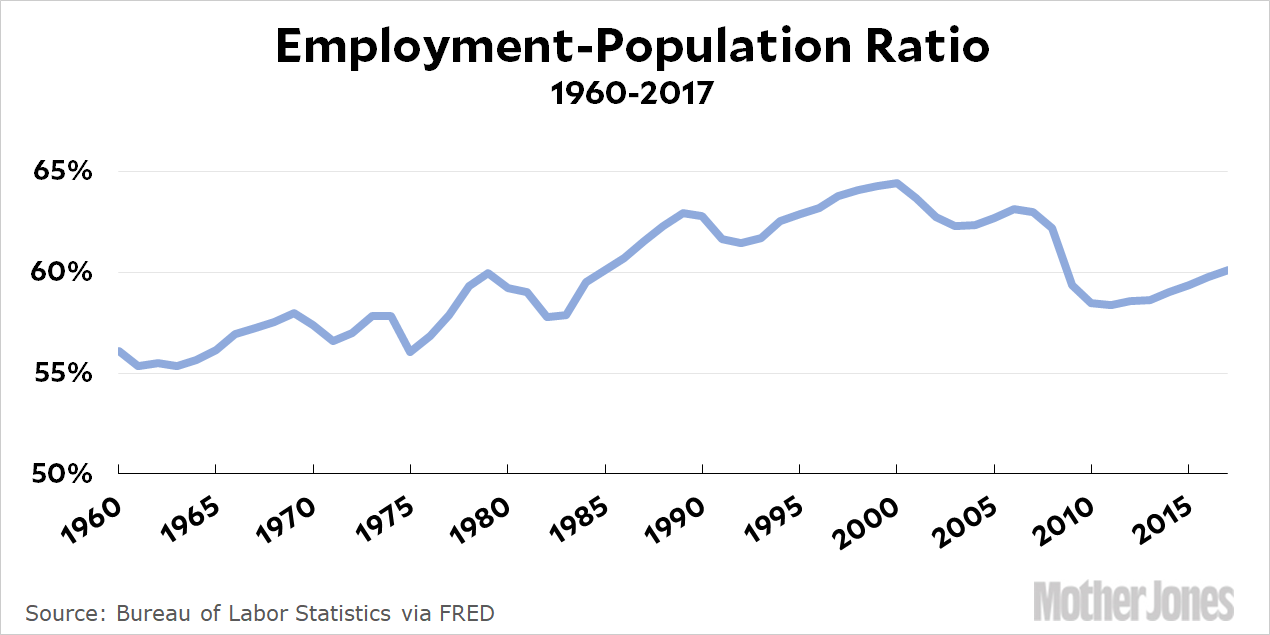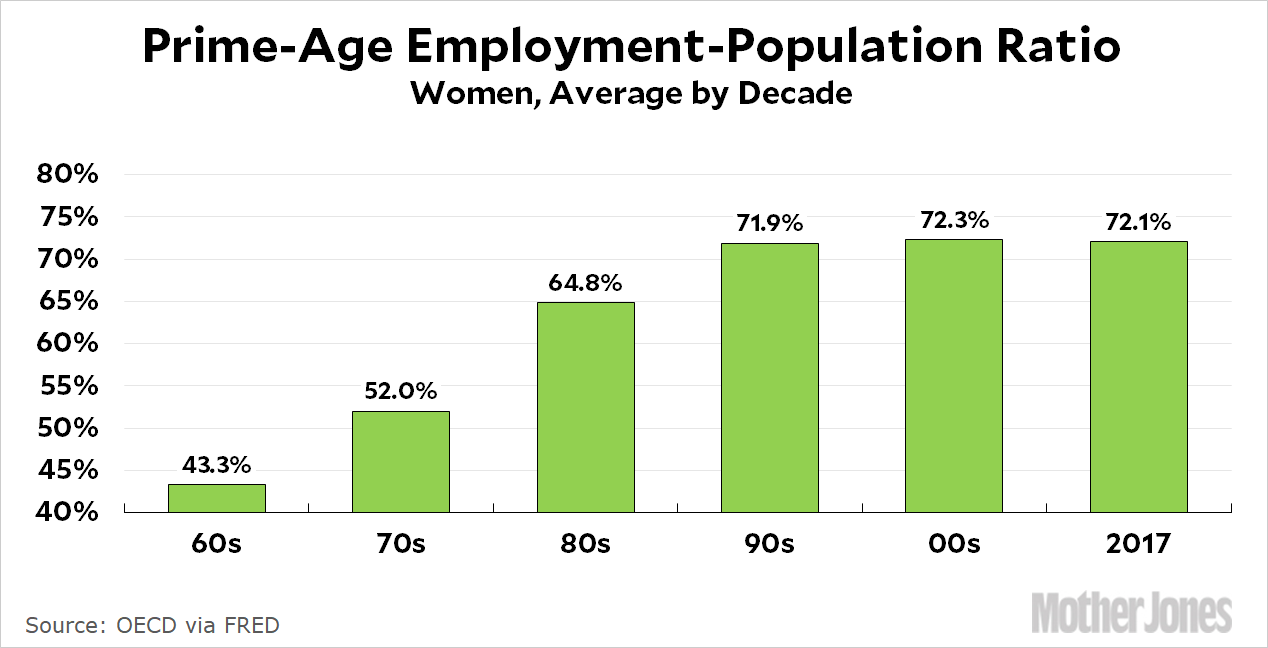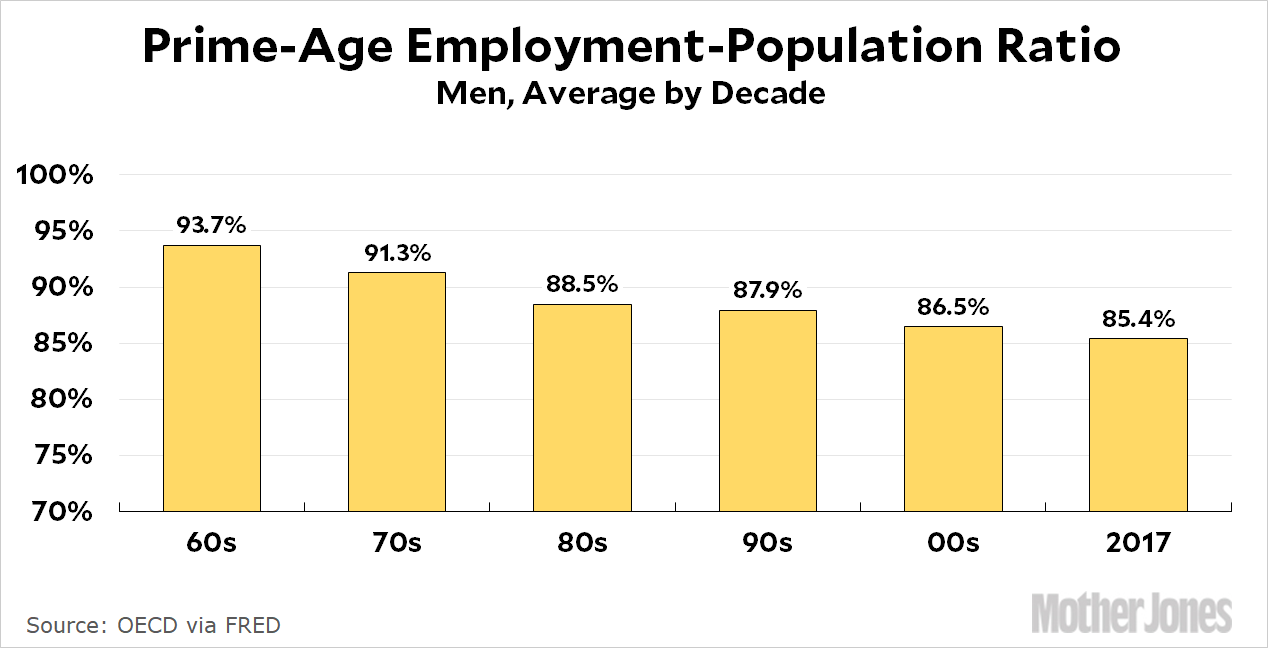The unemployment rate is currently 4.1 percent, a number so low that it’s been matched only one other time since 1970—and that was during the tail end of the dotcom bubble. But does that mean everyone who wants a job has one? It’s hard to say for sure. After all, there are people who have simply dropped out of the labor force and are no longer being counted. There are people working part-time who’d rather be working full-time. And there are people who stay at home voluntarily, but who might be enticed back into the labor force if they were offered enough money. So the unemployment rate doesn’t tell us conclusively if we’re really employing every single person that we could be.
But if the unemployment rate doesn’t tell us if we’re at full employment, what does? A popular alternative is the employment-population ratio, which just measures the number of people with jobs, full stop. It looks like this:

Th empop ratio increased steadily until about 2000, and then slumped. So this means we used to have a lot more people working than we do now. Right? Not necessarily. The baby boomers started retiring around 2000, and that reduced the empop ratio even though it doesn’t mean there’s anything wrong with the labor market. And should the peak of the dotcom bubble be our yardstick anyway? When you take those things into account, maybe 60 percent is just fine.
Here’s a better way of looking at it: prime-age workers only; for men and women separately; by decade. First up, here are women:

Women entered the labor force in greater numbers starting in the 60s and their employment-population ratio rose. Then it peaked and flattened out. If you want, you can argue that more women should be working, but that’s more in the nature of a dogma than a clear fact. Roughly speaking, there’s nothing really wrong with this picture. Now, here are men:

This is the problem: the number of men in the labor force has dropped by eight percentage points since the 60s. But why? This didn’t start in the Reagan era. Nor did it start during the Great Recession. Prime-age men have been slowly but steadily leaving the labor force during nearly the entire postwar era—even during the 60s and early 70s, when the economy was booming.
This is one reason that I’m not excited about a federal jobs guarantee. There’s a very specific problem here, and solving it requires something that’s both more expansive and more focused than a jobs guarantee. It also needs to be something more likely to work. More on that later, after everyone has had time to mull this over.


















